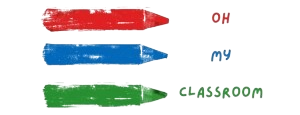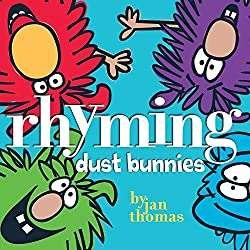Rhyming is a crucial early literacy skill that can have a significant impact on a child’s language development.
Learning to recognize and create rhyming words is an important foundation for developing phonemic awareness, a key component of learning to read.
For preschoolers, rhyming activities can be a fun and interactive way to develop their language skills while also promoting cognitive, social, emotional, and physical development.
We will explore rhyming activities for Preschool kids.
Nursery Rhymes:
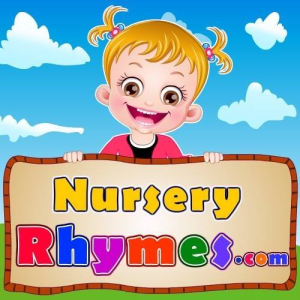
Use nursery rhymes that are already familiar to the children to introduce them to the concept of rhyming. For example, “Twinkle Twinkle Little Star” or “Humpty Dumpty”. As you read or sing the nursery rhyme, emphasize the words that rhyme.
Rhyming Pairs:
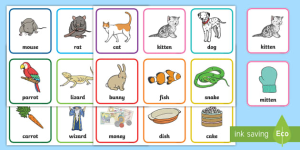
Create sets of picture cards with rhyming pairs, such as hat/cat, dog/frog, and pig/wig. Have the children match the pairs of pictures that rhyme.
Rhyming Bingo:

Create a bingo card with pictures that rhyme. Call out the words, and have the children find the pictures that match the words on their bingo cards.
Rhyming Books:
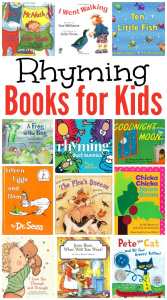
Choose books with rhyming words, and read them aloud to the children. Have the children identify the rhyming words as you read.
Related: 20 Engaging Literacy Activities for Preschoolers
Rhyming Songs:
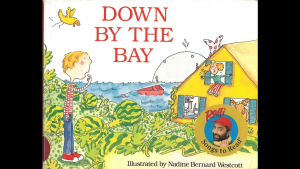
Sing songs that have rhyming words, such as “Down by the Bay” or “Apples and Bananas”. Encourage the children to come up with their own rhyming words.
Rhyming Word Hunt:
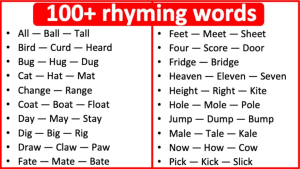
Have the children go on a rhyming word hunt in the classroom or outside. Give them a list of words to find, and have them write down the words they find that rhyme.
Rhyming Memory Game:
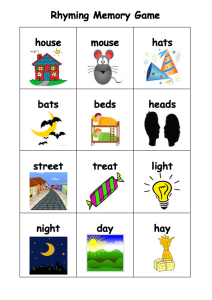
Create a memory game with picture cards that rhyme. Have the children turn over two cards at a time and try to find a pair that rhymes.
Rhyming Story Time:
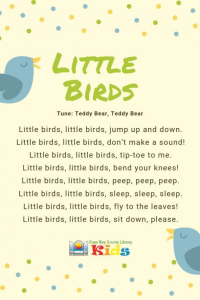
Read a story to the children, and ask them to listen for the rhyming words. After the story, have the children identify the rhyming words and come up with their own rhyming words.
Rhyming Word Wall:
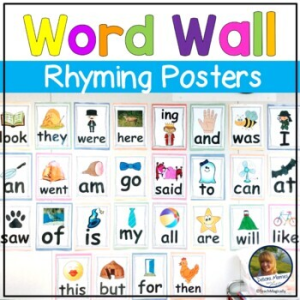
Create a rhyming word wall in the classroom. Have the children come up with rhyming words to add to the wall.
Rhyming Relay Race:
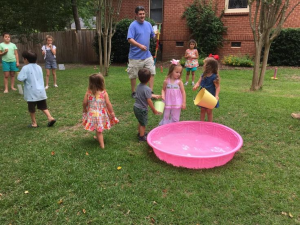
Divide the children into teams, and have them race to find objects in the classroom that rhyme with a given word. The first team to find all the objects wins.
Rhyming Scavenger Hunt:
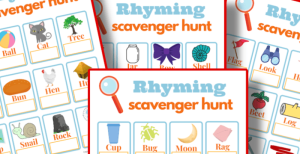
Hide objects that rhyme around the classroom or playground and have children search for them. Once found, they can say the word out loud and find another object that rhymes with it.
Rhyming Charades:
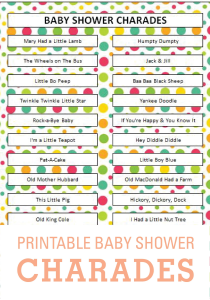
Choose a word that rhymes with a word the children already know and have them act it out for the rest of the class to guess.
Rhyming Picture Dictionary:
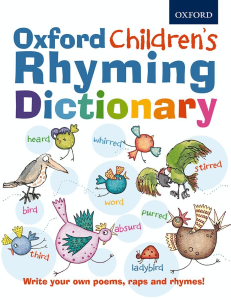
Create a class picture dictionary where each page features a different rhyming word. The children can draw pictures of objects that rhyme with the word and write the words underneath.
Rhyming Sort:
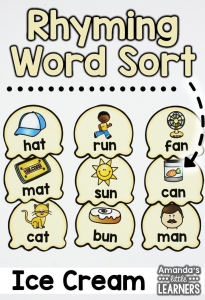
Provide a variety of objects and have children sort them into groups based on their rhyming sounds. For example, have a group for “at” rhyming words (cat, hat, rat) and a group for “en” rhyming words (hen, pen, ten).
Rhyming Tic Tac Toe:
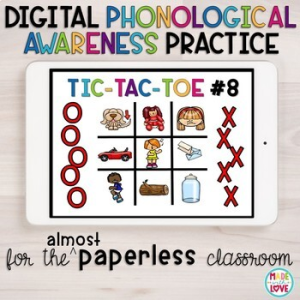
Draw a tic tac toe grid on a whiteboard or piece of paper and fill it with words that rhyme. Children take turns choosing a square and saying the word out loud to claim it.
Related: 20 Daily Preschool Activities at Home
Rhyming Puppet Show:

Have children create their own puppets and put on a show where the puppets use rhyming words in their dialogue.
Rhyming Simon Says:

Play a game of Simon Says using words that rhyme, such as “Simon says touch your toes if you hear a word that rhymes with the nose.”
Rhyming Word Search:

Create a word search puzzle where the words to be found all rhyme. Children can practice reading the words out loud as they find them.
Rhyming Hopscotch:
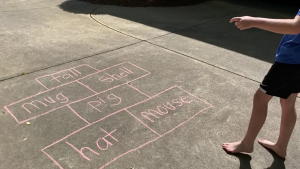
Draw a hopscotch board on the ground or use masking tape on the floor. Write rhyming words in each section and have children jump to the correct section based on the word they hear.
Rhyming Word Match:
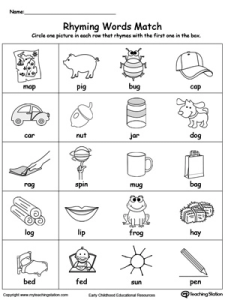
Write rhyming words on index cards and have children match the words that rhyme. For example, they would match “cat” with “bat” and “dog” with “log.”
Conclusion
In conclusion, incorporating rhyming activities into preschool lesson plans is an effective way to promote early language and literacy development.
By participating in these activities, children can not only develop their rhyming skills but also enhance their cognitive, social, emotional, and physical development.
Encouraging and supporting children’s language development from a young age can lead to lifelong benefits, and these rhyming activities are an excellent tool for doing so.
